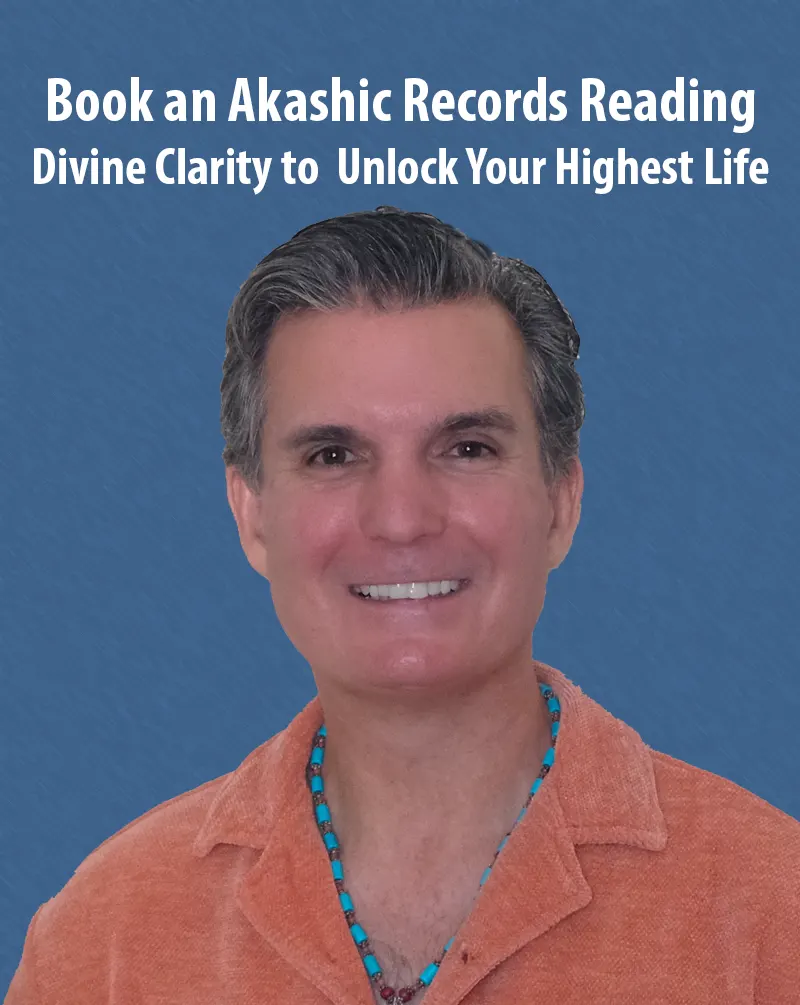Edgar Cayce and the Akashic Records: The Sleeping Prophet's Greatest Discovery
Published January 25, 2025

Table of Contents
- Edgar Cayce and the Akashic Records: The Sleeping Prophet's Greatest Discovery
- The Humble Beginnings of a Spiritual Giant
- Cayce's Understanding of the Akashic Records
- Cayce's Methodology: The Art of Sacred Sleep
- Revolutionary Discoveries Through the Records
- The Cayce Method vs. Modern Akashic Records Reading
- The Association for Research and Enlightenment (A.R.E.)
- Scientific Validation and Challenges
- Cayce's Influence on Modern Akashic Records Practice
- The Spiritual Laws According to Cayce
- Edgar Cayce and the Akashic Records: The Sleeping Prophet's Greatest Discovery
- The Humble Beginnings of a Spiritual Giant
- Cayce's Understanding of the Akashic Records
- Cayce's Methodology: The Art of Sacred Sleep
- Revolutionary Discoveries Through the Records
- The Cayce Method vs. Modern Akashic Records Reading
- The Association for Research and Enlightenment (A.R.E.)
- Scientific Validation and Challenges
- Cayce's Influence on Modern Akashic Records Practice
- The Spiritual Laws According to Cayce
Edgar Cayce and the Akashic Records: The Sleeping Prophet's Greatest Discovery
In the annals of spiritual history, few figures loom as large as Edgar Cayce, the humble photographer from Kentucky who became known as the "Sleeping Prophet." While Cayce is famous for his medical readings and prophecies, his most profound contribution to humanity may be his systematic exploration of the Akashic Records – the cosmic library of souls that he called "God's Book of Remembrance."
The Humble Beginnings of a Spiritual Giant
Edgar Cayce (1877-1945) didn't set out to become a spiritual pioneer. Born into a farming family in rural Kentucky, he was a devout Christian who initially struggled with his unusual abilities. As a young man, Cayce discovered he could enter a trance state and provide detailed medical diagnoses for people he had never met, often recommending treatments that proved remarkably effective.
The Accidental Discovery
Cayce's first encounter with what we now understand as the Akashic Records happened during a medical reading in 1901. While in trance, he began receiving information not just about the person's current health, but about their past lives and how those experiences were affecting their present condition. This was revolutionary – and deeply troubling to Cayce's conservative Christian beliefs.
Initially, Cayce resisted this expansion of his abilities. He feared it contradicted his religious upbringing and questioned whether the information was coming from a divine source. However, the accuracy and healing potential of these readings eventually convinced him to continue, leading to over 14,000 documented sessions over 43 years.
Cayce's Understanding of the Akashic Records
"God's Book of Remembrance"
Cayce rarely used the term "Akashic Records," preferring to call them "God's Book of Remembrance" or simply "the records." He described them as:
"The record that the individual entity itself writes upon the skein of time and space, through patience – and is opened when self has attuned to the infinite, and may be read by those attuning to that consciousness..."
This definition reveals Cayce's understanding that the Records are not some external cosmic database, but rather the soul's own written history, accessible to those who can align with divine consciousness.
The Nature of Soul Records
Through his readings, Cayce revealed several key insights about the Records:
Individual Soul Libraries: Each soul maintains its own record of experiences, thoughts, and actions across all lifetimes. These are not judgmental records but learning resources.
Collective Consciousness: Individual records are part of a larger collective consciousness that connects all souls. Information can be shared and accessed across soul families and groups.
Living Documents: The Records are not static but continuously updated as souls make new choices and have new experiences. They reflect both actual experiences and potential futures.
Moral and Spiritual Growth: The primary purpose of the Records is to facilitate soul growth and spiritual evolution. They provide guidance for healing and development.
Cayce's Methodology: The Art of Sacred Sleep
The Trance State
Cayce's approach to accessing the Records was unique and methodical. He would:
- Prepare Physically: Loosen his clothing, lie down on a couch, and place his hands on his solar plexus
- Enter Trance: Use self-hypnosis to enter a deep, sleep-like state
- Receive the Suggestion: His wife Gertrude would provide the suggestion about whom to read for
- Access the Records: In trance, he would locate the individual's records and begin speaking
- Provide Information: Deliver detailed information about past lives, present challenges, and future potentials
- Close the Session: Receive the suggestion to wake up and return to normal consciousness
The Language of the Records
Cayce's readings had a distinctive style and language that reflected the consciousness he was accessing:
- Biblical References: Heavy use of Christian terminology and biblical concepts
- Archaic Language: Formal, sometimes archaic speech patterns
- Symbolic Imagery: Complex metaphors and symbolic descriptions
- Specific Details: Remarkably precise information about historical periods, locations, and events
- Moral Framework: Emphasis on spiritual laws, karma, and soul development
Revolutionary Discoveries Through the Records
Reincarnation and Karma
Perhaps Cayce's most controversial contribution was introducing Western audiences to the concepts of reincarnation and karma through a Christian framework. His readings revealed:
Soul Continuity: The soul survives death and incarnates multiple times for learning and growth
Karmic Healing: Present-life challenges often stem from past-life experiences and choices
Soul Groups: Souls reincarnate in groups, working out relationships and lessons across lifetimes
Purpose-Driven Lives: Each incarnation has specific purposes and lessons to accomplish
Health and Healing Insights
Cayce's medical readings, informed by the Records, provided revolutionary insights:
Holistic Health: Physical symptoms often have spiritual or karmic roots
Mind-Body Connection: Mental and emotional states directly affect physical health
Vibrational Medicine: Healing involves raising the body's vibrational frequency
Preventive Care: Spiritual and mental hygiene prevents physical illness
Spiritual Evolution
The Records revealed a comprehensive understanding of spiritual development:
Soul Development: Souls evolve through experiences across multiple dimensions
Free Will: While influenced by past actions, souls always have the power to choose
Service to Others: Spiritual advancement comes through serving others
Unity Consciousness: The ultimate goal is reunion with the divine source
The Cayce Method vs. Modern Akashic Records Reading
Similarities to Modern Practice
Many contemporary Akashic Records readers use methods that echo Cayce's approach:
Altered States: Accessing Records requires shifting consciousness
Sacred Intention: Approaching the Records with reverence and spiritual purpose
Specific Protocols: Using consistent methods to open and close Record sessions
Ethical Framework: Maintaining high ethical standards and spiritual integrity
Key Differences
Modern practice has evolved in several ways:
Accessibility: Today's methods are designed for ordinary people to learn, not just gifted individuals
Waking State: Most modern readers access Records while fully conscious
Prayer-Based Opening: Use of specific prayers rather than self-hypnosis
Interactive Sessions: Client participation and questions during readings
Diverse Spiritual Frameworks: Integration with various spiritual and religious traditions
The Association for Research and Enlightenment (A.R.E.)
Preserving Cayce's Legacy
In 1931, Cayce founded the Association for Research and Enlightenment (A.R.E.) in Virginia Beach, Virginia, to preserve and study his readings. The A.R.E. has:
- Maintained the Complete Archive: All 14,306 readings are preserved and catalogued
- Conducted Research: Scientific studies on the accuracy and implications of the readings
- Educational Programs: Courses and workshops on applying Cayce's insights
- Health Services: Integrative medical approaches based on Cayce's health readings
- Spiritual Development: Programs for personal and spiritual growth
The Cayce Hospital and Atlantic University
Cayce's vision extended beyond individual readings to institutional healing and education:
Cayce Hospital (1928-1931): The first hospital in America to combine traditional medicine with spiritual healing approaches
Atlantic University: An educational institution dedicated to integrating spiritual wisdom with academic learning
While both institutions faced challenges in their early years, they established precedents for holistic healing and consciousness-based education that continue today.
Scientific Validation and Challenges
Documented Accuracy
Researchers have found remarkable accuracy in Cayce's readings:
Historical Verification: Many historical details in past-life readings have been verified through archaeological discoveries
Medical Successes: Numerous documented cases of healing through Cayce's recommended treatments
Prophetic Accuracy: Some of Cayce's prophecies about technological and social developments proved accurate
Consistency: Despite 43 years of readings, Cayce's core teachings remained remarkably consistent
Skeptical Challenges
Critics have raised questions about:
Subjective Interpretation: Difficulty in objectively verifying spiritual information
Selective Reporting: Tendency to focus on successful cases while ignoring failures
Cultural Bias: Cayce's readings reflected his Christian, early 20th-century American perspective
Lack of Controlled Studies: Absence of rigorous scientific testing of the Record-reading process
Cayce's Influence on Modern Akashic Records Practice
The Lineage of Teachers
Cayce's work inspired numerous teachers and practitioners:
Hugh Lynn Cayce: Edgar's son, who developed educational programs based on the readings
Gina Cerminara: Author of "Many Mansions," which popularized reincarnation concepts from Cayce's work
Henry Reed: Developed intuitive development programs based on Cayce's insights
Contemporary Teachers: Modern instructors like Linda Howe and Maureen St. Germain built upon Cayce's foundation
Evolution of Methodology
Modern Akashic Records reading has evolved from Cayce's approach:
Democratization: Making Record reading accessible to ordinary people
Simplified Techniques: Developing methods that don't require deep trance states
Structured Training: Creating systematic curricula for learning Record reading
Integration with Other Modalities: Combining Record reading with healing and counseling techniques
The Spiritual Laws According to Cayce
The Law of One
Cayce's readings consistently emphasized the fundamental unity of all existence:
"Know that all force, all power that is manifested in itself, is of the one source. And the application of the source by the individual soul, entity, or body, may make for that which is constructive or destructive."
The Law of Cause and Effect (Karma)
Every action creates consequences that must be balanced:
"For what one sows, that must one reap. This is law. This is unchangeable. And when one understands this, then one is able to apply it constructively."
The Law of Grace
Divine love and forgiveness can transform karmic patterns:
*"Though ye may have fallen or failed, the love of the Father constraineth that you be given opportunity again and again, until ye make



